Amplifying African Voices in Climate Change: My Experience at COP27
Marie Christina Kolo is a 2017 Fellowship Alumna and the winner of the 2022 Leadership Impact Award. Marie is a social entrepreneur, eco-feminist, and climate activist, empowering women and youth in the fight against climate change. In this piece, she reflects on her experience at COP27 in Sharm El-Sheikh, Egypt. Learn more about Marie and her work.
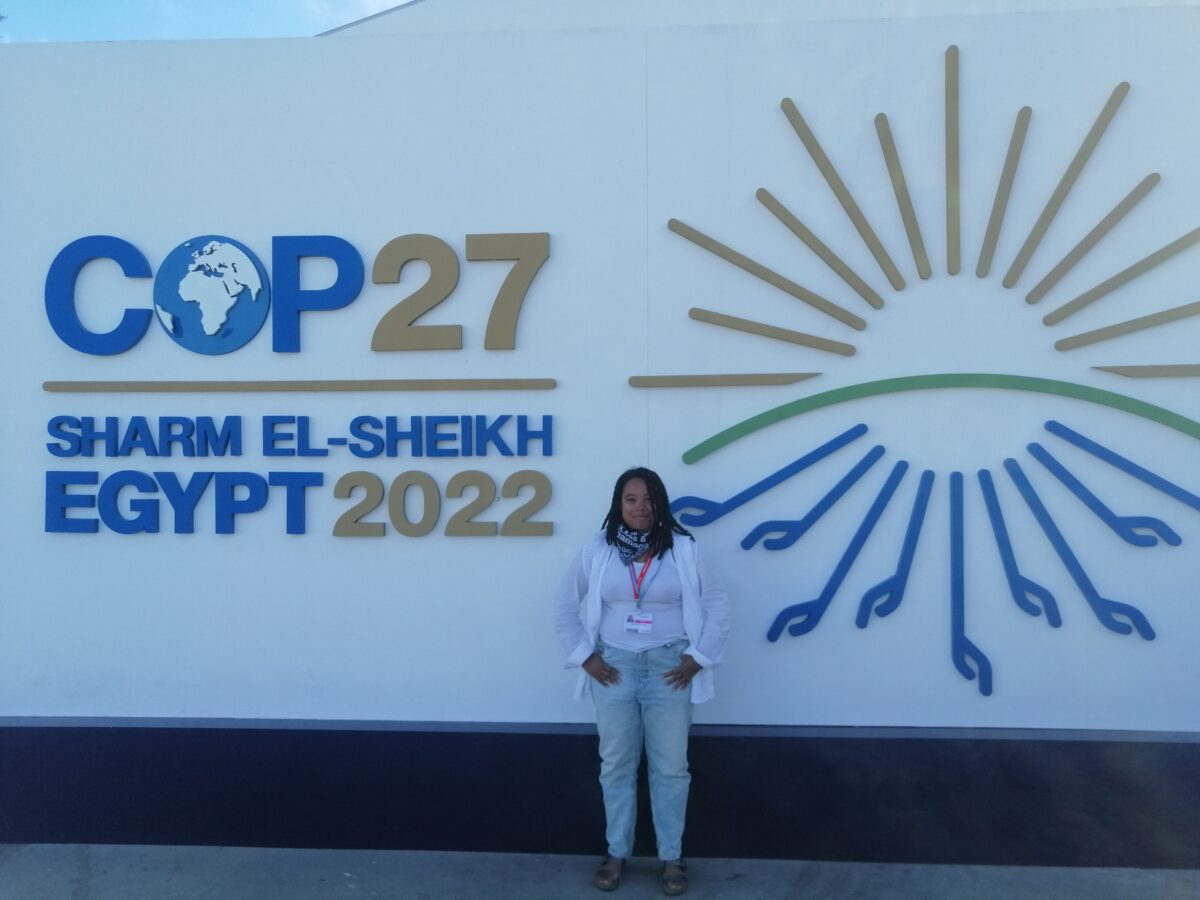
Droughts in Madagascar and Comoros, rising waters in Mauritius and Seychelles, and increasingly intense cyclones throughout the region – this is what has become the daily life of millions of people. The intensification of climatic phenomena in recent years is a reality in the Southwest Indian Ocean, the third most affected region in the world by extreme weather events. These hazards are one of the manifestations of climate change, which particularly affects the populations and biodiversity in the region.
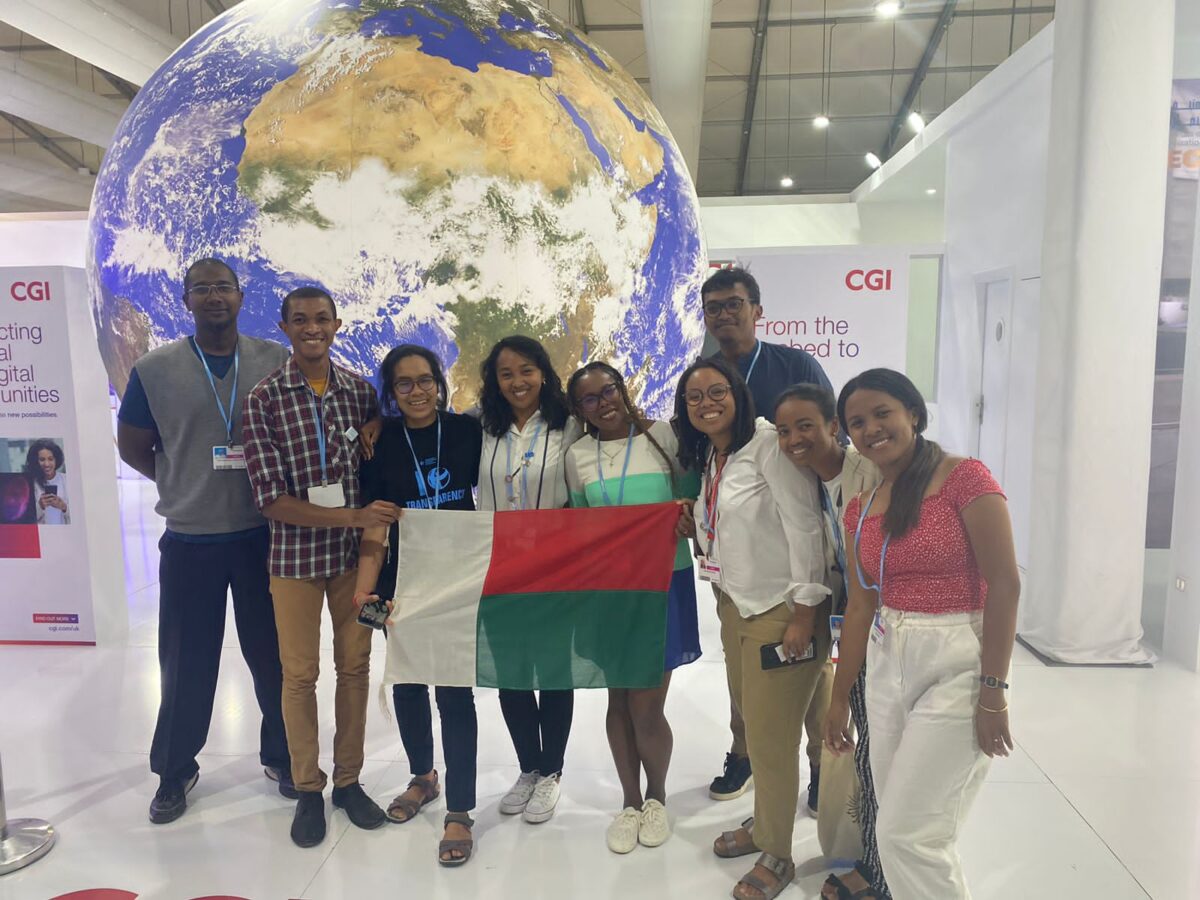
The impacts of climate change are, above all, translated into human tragedies. Each year, millions of people lose their source of income and access to health and education through the increase in climatic migrations, the increase in malnutrition, the decrease of farmers’ harvests, and the destruction of important infrastructure, among other effects.
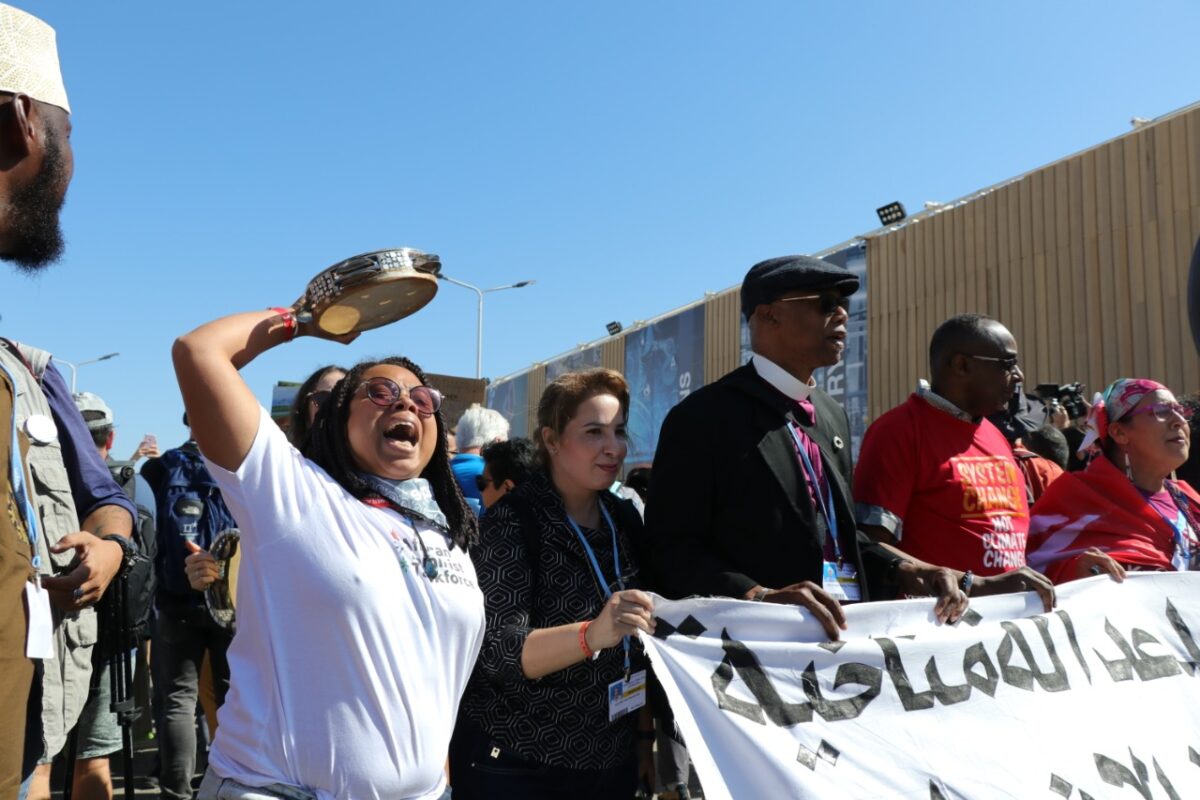
This context is unfortunately shared by the entire African continent, the most vulnerable continent to the impacts of climate change. At a time when Africa is more than ever affected, the challenge for the Conference of the Parties 27 (COP27) was for Africans to make their voice heard.
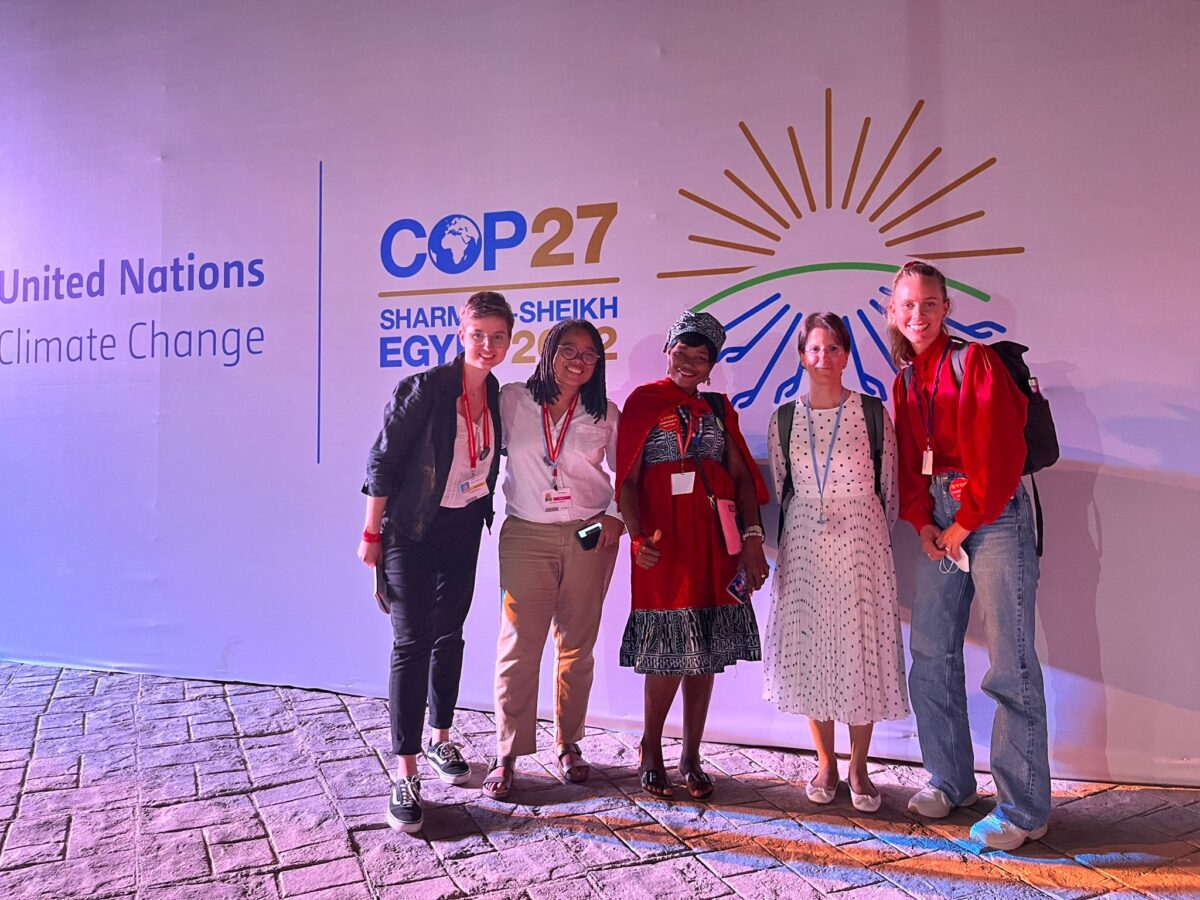
Moving from words to action
As a Malagasy, participating in COP27 meant making the voices of the most vulnerable communities heard. It is those who pollute the least who pay the highest price today, which is why climate justice is at the heart of today’s debates. In a context of soaring energy and food prices and a tense geopolitical context, climate financing becomes a litmus test for international solidarity. Climate change did not stop during the COVID-19 pandemic, and it will not stop in the face of geopolitical tensions either. My priority was to make people understand the urgency of moving from words to action.
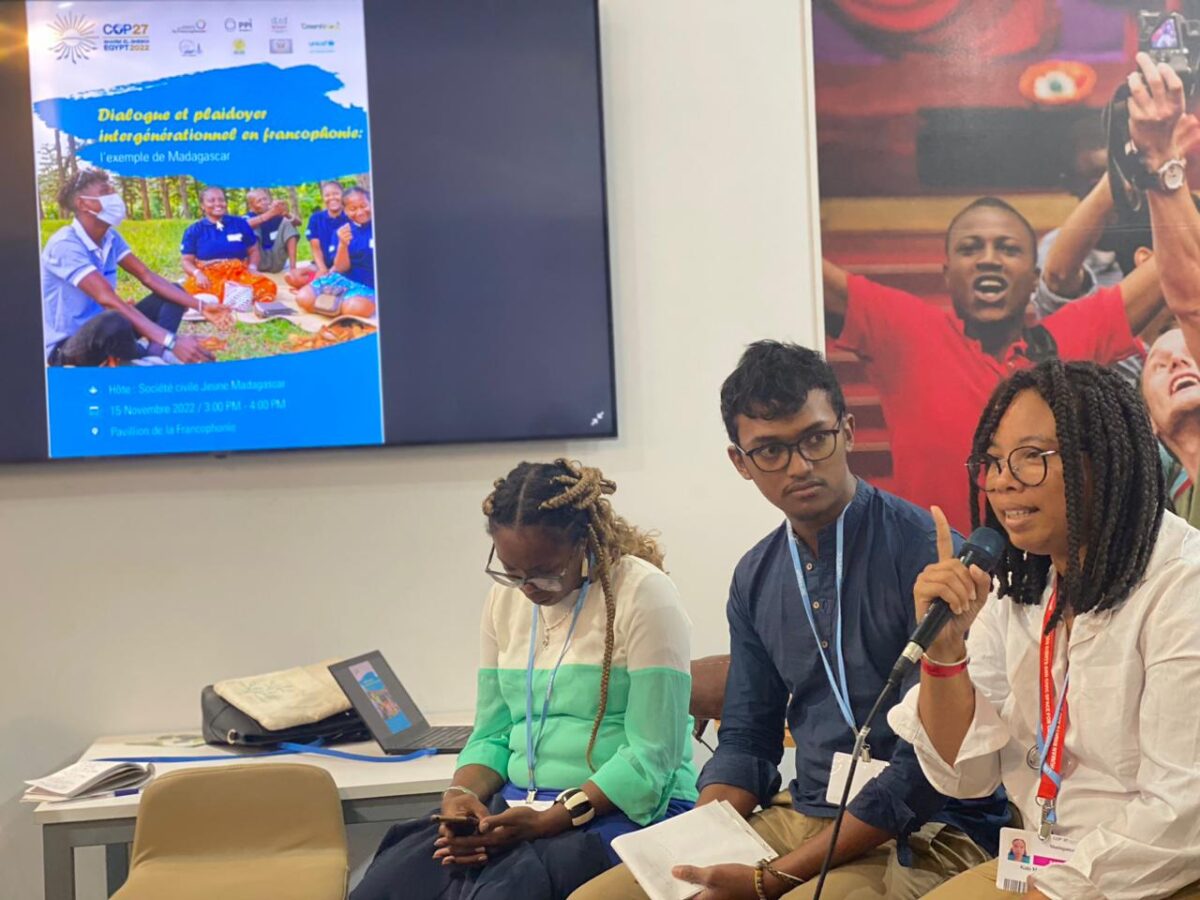
At COP27, I participated to help amplify the solutions of those in my country and in the sister islands who are fighting and facing the consequences of climate change. While green finance can accompany and strengthen the resilience of local communities, funds must also be inclusive and integrate youth, women, people with disabilities, and other minorities.
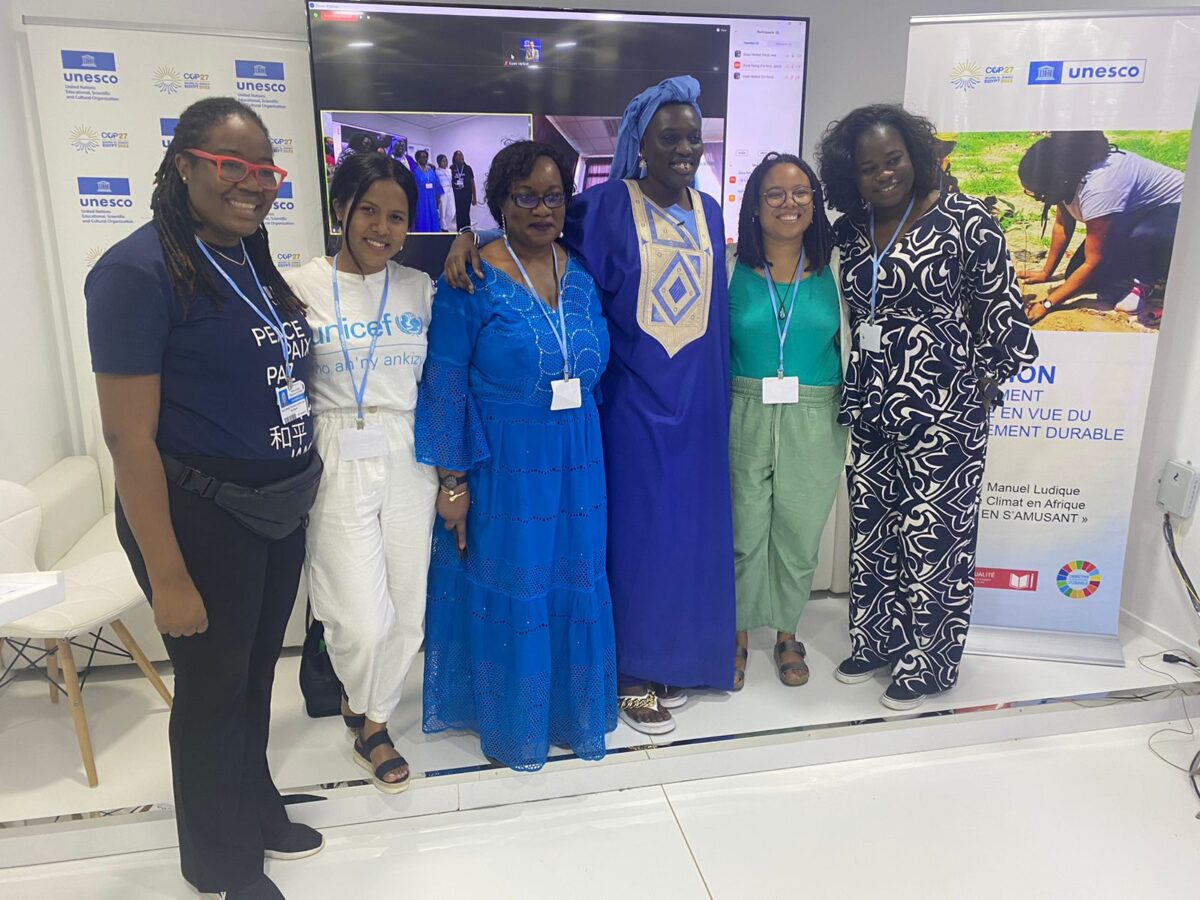
Advocating for change on the global stage
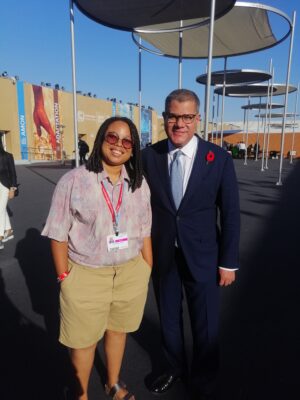
COP is a unique place that provides an opportunity to interact with leaders and government officials who are usually less accessible. During my two intense weeks in Sharm, I mobilized with the African Feminist Task Force, the Women & Gender Constituency, as well as other actors of the Malagasy and African civil society through different actions.
I advocated for the Madagascar government to sign the Declaration on Children, Youth and Climate Action with Madagascar’s Minister of Environment. With fellow activists from Madagascar and the Minister, we created a working group and advocated for a youth representative to be appointed at the Ministry of Environment.
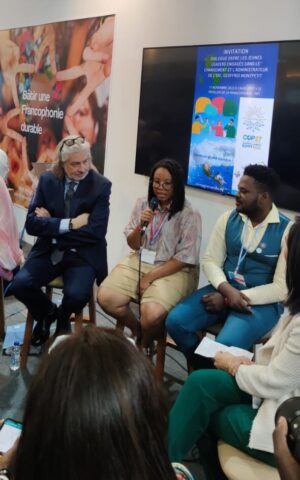
I co-organized an inter-generational dialogue with the actors of the young civil society to highlight the importance of dialogue between generations in the fight against climate change. This aspect is particularly important, considering that in our African culture, youth are not expected to be loud and express themself.
After a working session with the UN Special Rapporteur on violence against women, I took the pledge to disseminate the report in my country and enrich it with local data. This year, my organization, Green N Kool, decided to launch the first project dedicated to fighting against violence against women, girls, and climate change.
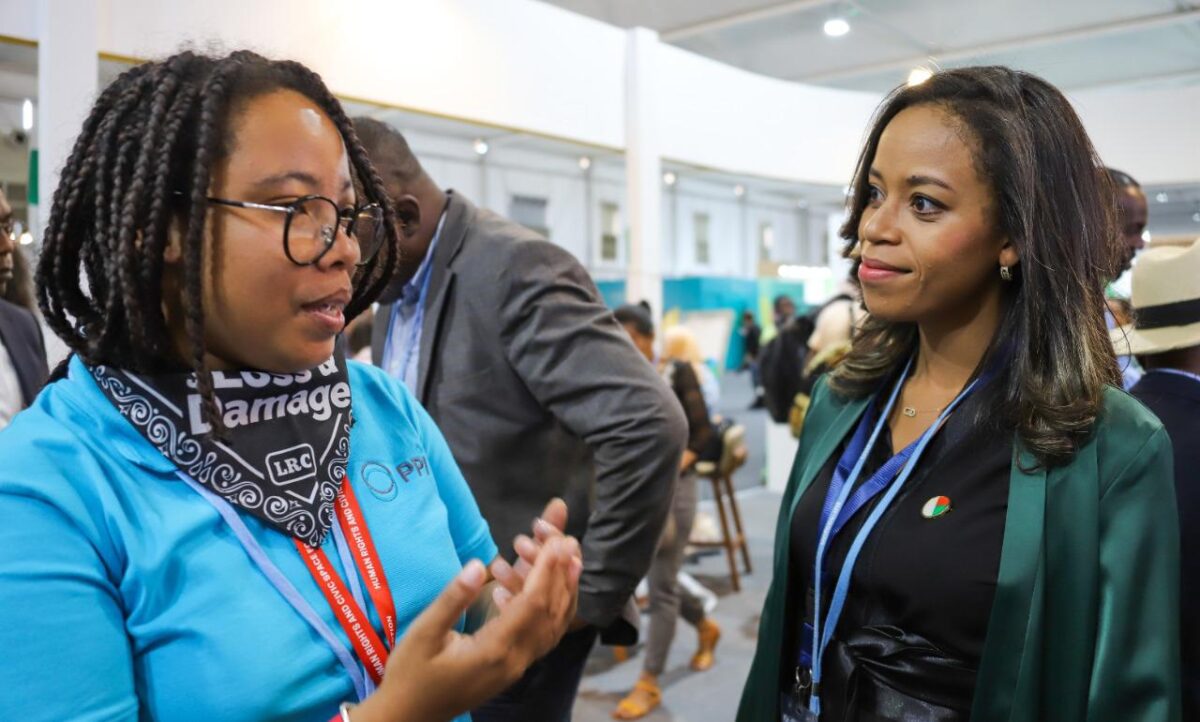
My organization, Green N Kool, won the 2nd Prize in Youth Innovation on Climate, organized by the International Organization of the Francophonie. Our solution is focused on water, sanitation, and access to hygiene during natural disasters. Our goal is to expand to other African countries in the next few years.
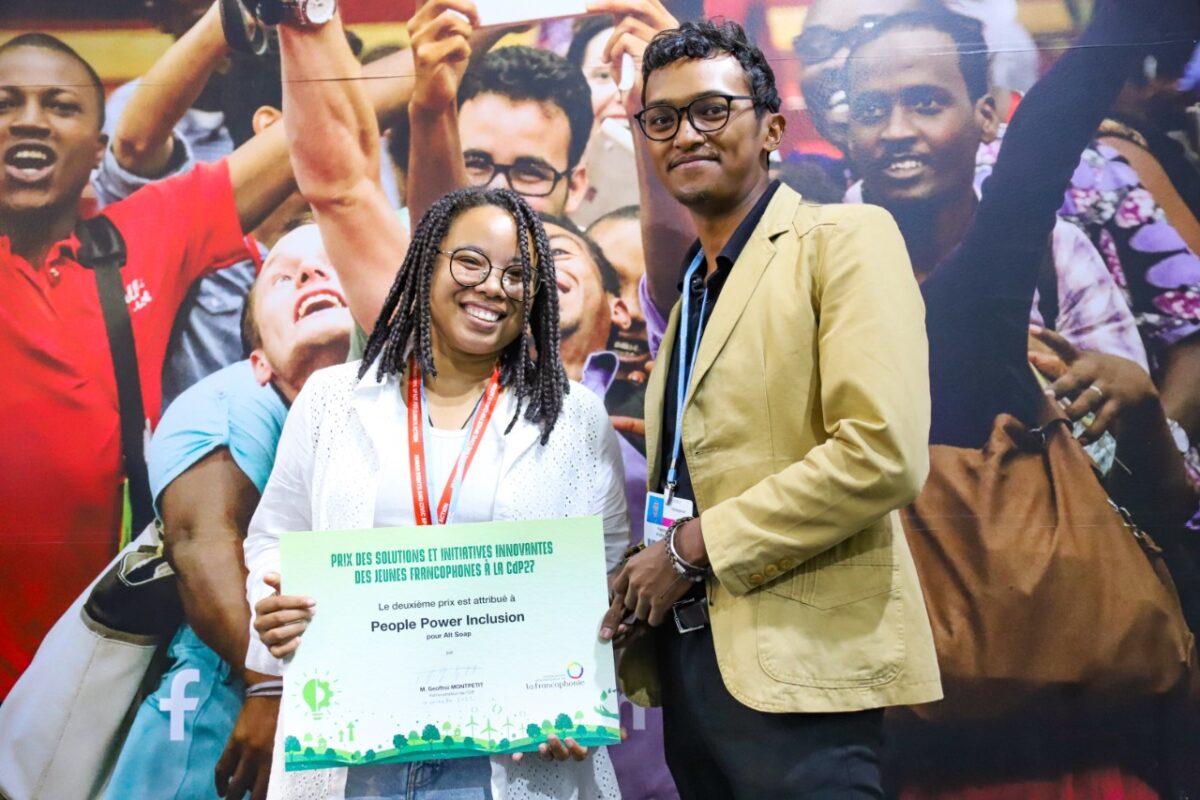
There was high participation of Fellowship Alumni from across the continent, and among these activists, researchers, entrepreneurs, and government representatives, I couldn’t help but imagine the impact of working together. This confirmed my conviction that it is time to gather our forces and create a knowledge network to continue the work, exchange, reflect and join efforts in the fight against climate change.
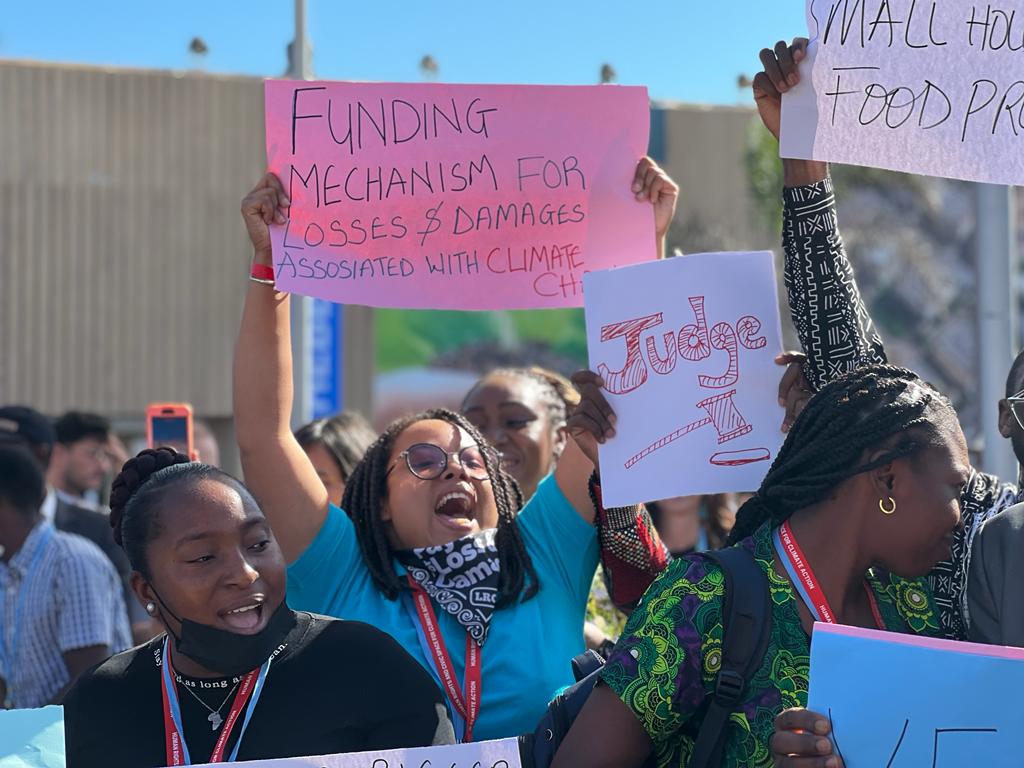
The Mandela Washington Fellowship is a program of the U.S. Department of State with funding provided by the U.S. Government and administered by IREX. The views expressed in this piece are those of the author and do not necessarily represent the views of the U.S. Government.
Next Story
Fellowship Alumni
From Ghana